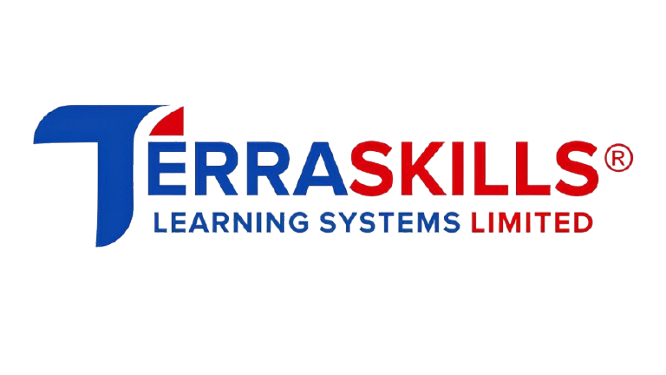Despite the large number of applications per job, recruiters are struggling to find candidates with the right skills. Your degree will have provided you with a whole host of subject-specific and transferrable skills. Despite this it’s imperative that you convey how you’ve gained the core attributes that you think would make you a worthwhile addition to the organization.
Here are some of the most common key skills that graduate employers expect you to demonstrate. It’s vital that you understand these skills, and how you can show that you’ve developed them, in order to write a successful job application.
1. Resilience
This refers to your ability to deal with setbacks, and is something that graduate employers have increasingly started to consider. How well do you cope with stressful situations or when something goes wrong? How do you react to unexpected changes or problems that occur during a project?
You aren’t expected to be unaffected by these events, but you need to be able to show that you react to them positively and are able to develop strategies to deal with them.
2. Commercial awareness
Also known as business acumen, this is all about understanding how an industry or particular organization works – where it sits in the market, who its competitors are and having knowledge of current developments in the field.
To exhibit commercial awareness, you’ll need to show you’ve done your research on the company and the sector it sits in. Membership of a professional organization or relevant work experience can also be used to illustrate this skill.
3. Good communication
This is about how clearly you put across your ideas and your ability to listen to others. Employers will be keen to see how you build rapport, persuade and negotiate.
Use your CV or application form to outline specific written and verbal examples of when you’ve put these skills into practice. This might be any public speaking you’ve done, or writing for a student newspaper, for example. Show how you tailored your message to the target audience.
4. Effective leadership and management
Even if you’re not applying for a management position, you’ll still need to demonstrate to employers that you have the potential to motivate and lead others in order to achieve common objectives. It’s also important to evidence the skill of self-management – demonstrating a situation where you’ve managed your own time successfully.
On application forms, detail situations where you’ve had the opportunity to plan and coordinate tasks during your degree or in extra-curricular activities such as university clubs and societies. The ability to solve problems and conflicts is always highly valued by recruiters.
5. Planning and research skills
To accomplish certain work tasks, you may need to come up with a suitable strategy and plan of action. This could involve seeking out relevant information from various sources. How you analyze, interpret and report these findings is what’s important here.
Highlight the relevant skills that you’ve developed during your degree – reading around a subject and analyzing that information before writing an essay, for instance, or interpreting the results of a scientific experiment.
6. Self-management skills
Self-management skills are skills that allow you to manage your time and be as productive as possible within the workplace. These skills ensure you prioritize tasks effectively, focus on your professional growth and contribute to your organization as a whole. Good self-management skills to include on your resume include time management, organization and self-motivation.
7. Organizational skills
Organizational skills are essential to an employee’s productivity, timemanagement and goal achievement. They are beneficial in any professional position and are highly sought after by employers. Organizational skills that are especially important include planning, critical thinking, attention to detail and conflict management.
8. Computer skills
Nearly every occupation requires the use of a computer in some capacity. Many jobs require more in-depth knowledge of computers, so including this skillset on your resume is necessary to show employers you are familiar with computer basics at a minimum. If the job you are applying for requires more advanced computer skills, be sure to highlight these on your resume as well if you possess them. Computer skills to highlight include being able to use word processing, spreadsheets, social media, data visualization and email communication.
9. Adaptability
Organizations’ want to stay competitive so it’s essential to show employers that you’re able to adapt to new situations and learn new skills in the workplace. Possessing this skill also tells employers that you’re a good leader who handles challenges well.
To evidence this in your application you could use examples of a time you’ve learned new skills or processes at university or an instance when you’ve adapted to a new or challenging situation in your part-time job.
10. Teamwork and interpersonal skills
Most graduates will have had the chance to work in teams during their time at university and in part-time jobs or work placements. Employers will be looking at your individual contribution towards achieving common goals.
This isn’t just about times when you’ve led a team successfully, but also when you’ve been an effective team member taking instructions and direction from somebody else.
11. Reliability and Dependability
Doing what you say you will by the deadline you have agreed, and turning up when you are meant to be there. Employers want employees who they can trust to perform their duties and meet deadlines without having to micro-manage them. Having a great work ethic ensures you can complete your tasks and manage your work effectively even when no one is regularly checking your progress.
12. Teachability
A willingness to learn new skills, whether those are job-specific or more general.
13. Relevant work experience
Having some work experience related to the job you’re applying for is increasingly important given the competition for graduate roles. It is something that most employers will look for when assessing candidates.
For many people today, a career for life is no longer an option. Most people will hold jobs with a variety of employers and move across different employment sectors through their working life.
We therefore all need to be flexible in our working patterns and be prepared if we believe there are better opportunities elsewhere.
For this, we need to understand that we all have a set of transferable skills or employability skills. These are skills that are not specific to one particular career path but are useful across all employment sectors. Your education and experience may make you eligible to apply for a job but, to be successful in most roles, you will need skills that you are likely to develop over time. Some will be specific to the job, but the vast majority will be so-called ‘soft skills’ that can be used in any job or employment sectors. These soft skills are ‘employability skills’: they are what makes you employable.
As a general rule, employers are willing to teach someone the job-specific skills required, such as how to operate particular pieces of machinery, or use particular computer packages that are very specific to that role or company. However, they usually want to see that you already have the other ‘soft skills’ before hiring, because they are much harder to teach.
Employability or ‘soft skills’ are the building blocks of your career. The media frequently run stories on how these skills are lacking in school-leavers, graduates and/or those already in employment. Organizations spend a lot of time and money training staff, not in job specific areas but in general and basic skills.
In times of high unemployment, employers have more choice of applicants and will favour those with well-rounded employability skills. Most of us start to develop these skills early on in life, but we may not be aware that we are doing so. Remember, though, that mastering these skills is a long-term process: there are few people who could—or would—ever claim that their soft skills could not be improved. Being able to apply for a job in the right way, and shine at interview—in other words, get a job—is not a key employability skill.
There are, inevitably, a wide range of skills that could be useful to employers. Each of us also has our own personal range of skills, and we therefore can each make a unique contribution to any organization. Learning to recognize and use your skills appropriately is essential.
It is worthy to note that an open mind, and a willingness to embrace new ideas, a growth mindset, is one of the most useful attributes that you can bring to any organization,



